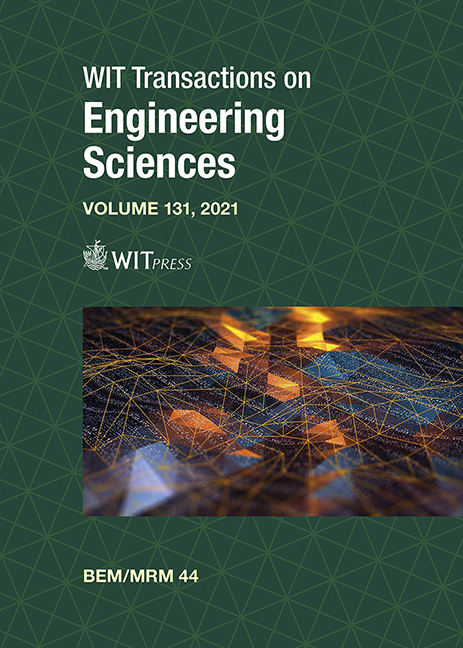ACCURACY ANALYSIS OF THE FAST MULTIPOLE METHOD FOR THREE-DIMENSIONAL BOUNDARY VALUE PROBLEMS BASED ON LAPLACE’S EQUATION
Price
Free (open access)
Transaction
Volume
131
Pages
13
Page Range
3 - 15
Published
2021
Size
564 kb
Paper DOI
10.2495/BE440011
Copyright
Author(s)
ANDRÉ BUCHAU
Abstract
The fast multipole method (FMM) is an established matrix compression technique for a fast and efficient solution of complex three-dimensional boundary value problems based on Laplace’s equation using the boundary element method (BEM). Furthermore, the FMM significantly accelerates the postprocessing of the solved BEM problem. The foundation of the FMM is a series expansion of Green’s function into spherical harmonics. Both the accuracy and computational costs are controlled by the order of this truncated series expansion. The FMM has been successfully applied to a plethora of engineering problems from multiple disciplines and its overall accuracy has been impressively proved. The basic numerical properties of the truncated series expansions of the FMM have been already investigated in detail but for point sources only. Here, I revisit the fundamentals of the FMM and analyze the relevant properties of spherical harmonics, the error of the truncated series expansions of the FMM, the influence of coordinate transformations of these series expansions and potential discontinuities of computed field values at the interfaces between the cubes of the hierarchical octree scheme of the FMM. In contrast to earlier publications, I analyze and visualize the field values of distributed single-layer sources instead of point sources inside the total computational domain of an octree cube with the help of three-dimensional plots of their field values and their related approximation errors. For these studies, I put a focus on the accuracy of the reversed FMM algorithm, which is very well suited for meshfree post-processing and which is introduced here in detail for the first time.
Keywords
Laplace’s equation, boundary element method, fast multipole method, spherical harmonics, post-processing





